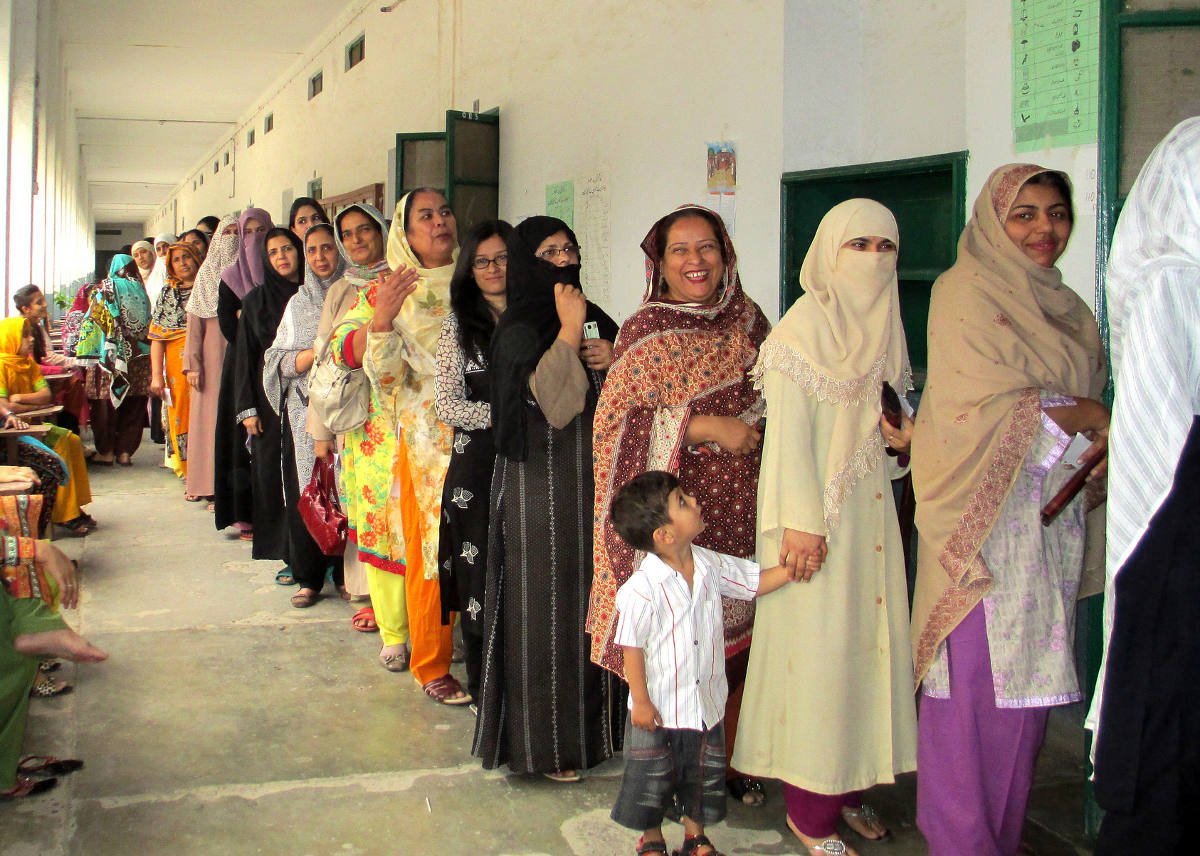ISLAMABAD, Pakistam (ViaNews) – The general election in Pakistan revealed a very interesting fact. According to Pakistan’s English-language news portal, Dawn.com, the number of voters pertaining to religious minorities in the country has climbed 30%.
That’s an increase of almost one million non-muslim people, in a country where 96.57% of the population is Muslim. Previous elections, back in 2013, had 2.77 million Non-Muslim voters registered, against the 3.63 million for this year’s election.
Why non-muslim voters increased 30%
The candidate of centrist political party PTI, Imran Khan, was tireless in motivating people to vote. Women who usually didn’t vote, signed up in masses to cast their vote. That might have been one of the major causes that made the number of non-muslim voters to increase by 30%.
Understanding the Pakistani Elections
From 342 seats of the National Assembly, 272 seats are elected by first-past-the-post voting, in which only the highest polling candidate is elected. As for the remaining seats, 60 are reserved for women and 10 seats are reserved for religious minority groups.
According to the constitution of Pakistan, a party needs to get a magic number of 137 seats to win the majority in the National Assembly. The winner is based on the seats won rather than the number of votes cast.
There are three major parties in Pakistan including Pakistan Tehreek-e-Insaf (PTI), Pakistan Muslim League Nawaz (PMN-N), and Pakistan Peoples Party Parliamentarians (PPPP).
According to the Election Commission of Pakistan, PTI has maintained a total number of 149 seats winning the seats game, PML-N got the total of 82 seats, and PPPP got 53 seats only.
On 17th of August, the polling for the selection of Prime Minister of Pakistan was held in National Assembly. The nominees for the Prime Ministership were Chairman PTI, Imran Khan, and Chairman PML-N, Shehbaz Sharif. The winner had to cast a minimum number of 172 votes.
According to the Pakistani National Television, Imran Khan won with a total number of 176 votes and will be taking the oath of Prime Ministership on 18th August, while Shehbaz Sharif received 96 votes only.
PTI managed to get the trust of people of the Federal capital as well as capital cities of all the four provinces. Chairman PML-N who was considered to be the best Chief Minister since the past 10 years, lost the game.
This year’s elections come with a few surprises. No one thought that PTI would won in Punjab state, as PML-N used to be stronger there. Punjab is the most populated province and in what relates to Pakistani elections, as the saying goes, whoever wins Pubjab, wins Pakistan.
Who are the Minorities in Pakistan
The Population in Pakistan is almost 97% Muslim. Only 3% of the population belong to other religions, the biggest being Hinduism and Christianity.
According to Dawn.com, The number of Hindu voters is now 1.77million. Christians are the second largest group of non-Muslim voters, totalling 1.64million.
In the 2013 elections, the number of Hindu voters was 1.40million. Today, the number of Hindu voters now stands at 1.77m. This means there’s a 21% increase in Hindu voters in 5 years.
The number of Christians voters has grown at a relatively higher pace as compared to Hindu voters. In the 2013 elections, there were 1.23million voters and today they are totalling 1.64million. This means there’s a 25% increase in Christian voters in 5 years.
According to the Pakistani Daily Dunya ePaper, people are calling this election “Tabdeeli”, meaning the change of time.







